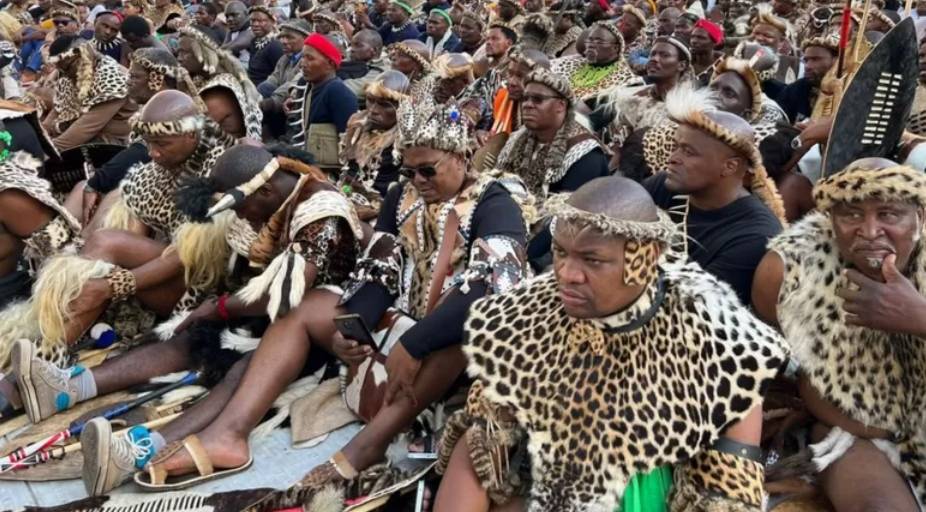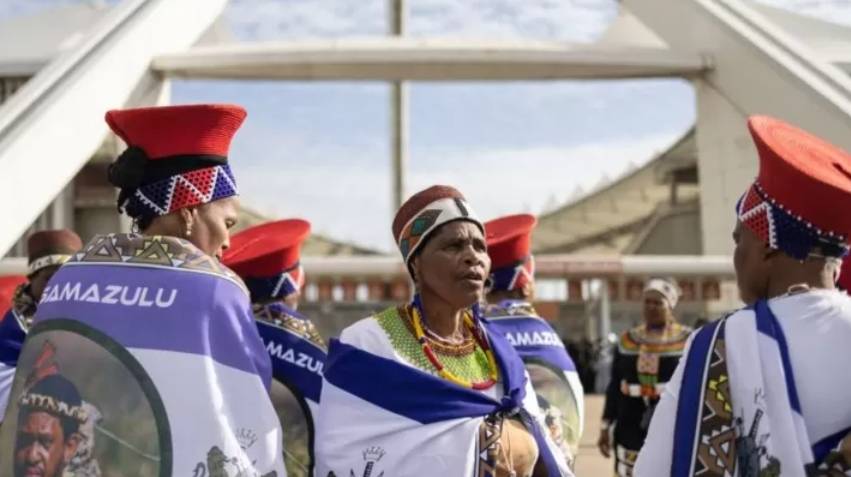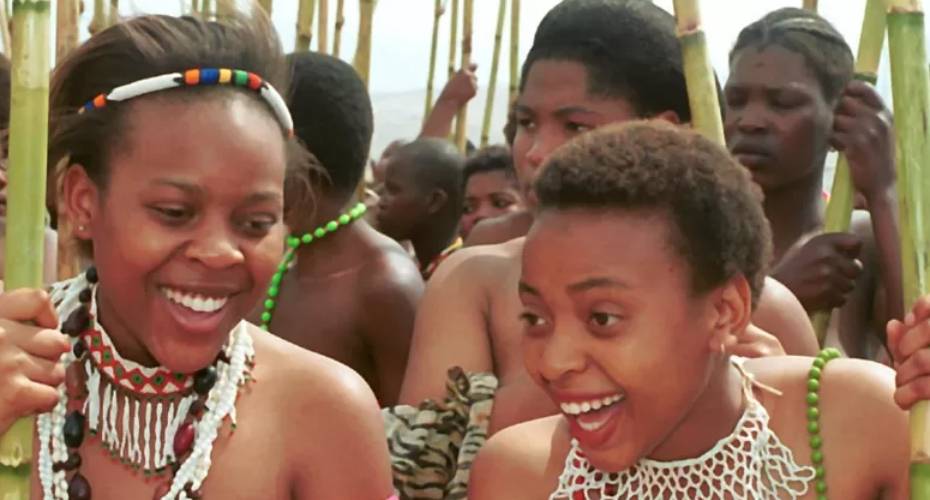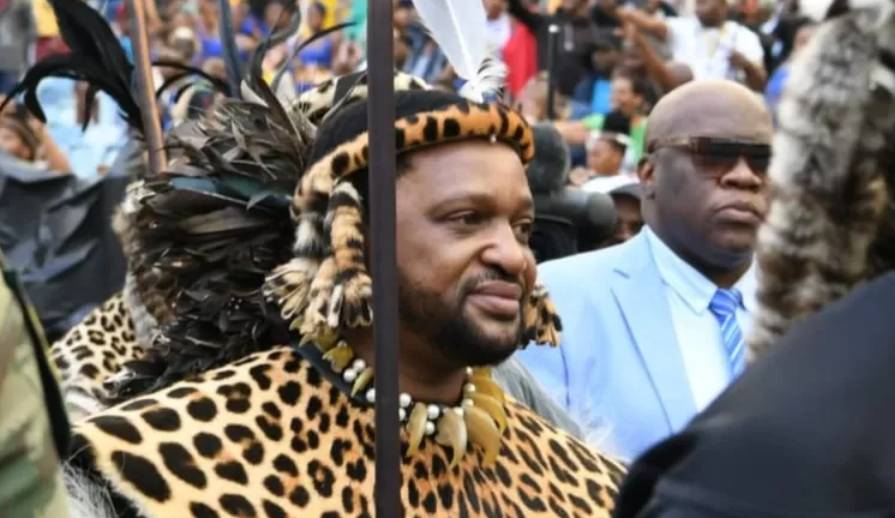Tens of thousands of people in the South African city of Durban celebrated the coronation of 48-year-old King Misuzulu Sinkobile Zulu, who assumed the title of King of the Zulus in August.
The ceremony, at which the king received a certificate of official recognition from President Cyril Ramaphos, was the first since 1971.
His father Goodwillu Zvelitini died in March 2021. He ruled for almost 50 years. He had six wives and at least 26 children. The sudden death of King Misuzulu’s mother (a month after she was appointed queen regent) further intensified the power struggle in the royal court.
The coronation ends a long and bitter struggle to find a successor. Prince Bambindlovu Zulu told the BBC he believes his brother will bring the royal family and people together. “I think he will be a great king,” the prince said.

“His Majesty is not required to wear British style clothes”
Festive songs and dances accompanied each performance. Several local and foreign senior politicians were among the tens of thousands of people who attended the ceremony at Moses Mabida Stadium, which combined elements of traditional Zulu culture and Christian prayers.
One-fifth of South Africa’s population is Zulu, the country’s largest ethnic group, and its taxpayer-funded monarchy has an annual budget of more than $3.6 million.
It is money that turns many South Africans away from royalty – given that the country has eight monarchs officially recognized by the government, all funded by taxpayers.
The Zulu royal family receives one of the largest budgetary allocations, although the KwaZulu-Natal provincial government says the money is not only spent on the royal family – it also covers staff salaries, palace upkeep and programs related to traditional ceremonies.

The state coronation took place two months after the coronation at a palace in the province of KwaZulu-Natal. This is the first coronation of a Zulu king since South Africa became a democracy in 1994. The father of the new monarch was crowned in 1971.
“The apartheid government then presented a certificate to the king. This time we expect our king to wear his traditional dress because we now live in a democracy. His majesty is not required to wear British-style clothes,” said the professor of African languages at the University KwaZulu-Natal Sihawukele Ngubane.
The king, as seen in the photo, lived up to expectations. The guests of the ceremony were also dressed in traditional attire.
“This is a joyful event, the beginning of a new era,” Professor Ngubane did not hide his delight.
“As the king said, so shall it be”
The political parties of South Africa welcomed the new king, and only the communists picketed the ceremony.
Misuzulu delivered his first official speech a few months after his father’s death, before he officially became heir to the throne. In a speech, he called on the people of KwaZulu-Natal to stop the looting and riots that broke out after the arrest of former President Jacob Zuma (also a Zulu) for contempt of court.
These were the most destructive riots in South Africa since the fall of apartheid. Speaking in Zulu was clearly difficult for Misuzul, and he ended up continuing it in English, which he speaks much better.
In September, on the eve of his accession to the throne, King Misuzulu led the initiation ceremony for teenage Zulu girls “Reed Dance”, a traditional annual ceremony of the Zulu people, which is held in order to tell the younger generation about the roots and preserve traditions in the face of globalization. Girls and young women dance and sing ethnic songs during the ceremony.

During this ceremony, the monarch spoke out against gender-based violence in South Africa, which has one of the highest rates of rape and sexual harassment in the world: “Violence against women and children is a shame for our nation. Women need to be respected and protected. We, as men, should put more effort into it.”
The popularity of King Misuzulu, according to Professor Ngubane, is a sign that, despite his exclusively ceremonial position, many consider him a moral authority: “In Zulu we say: Umlomo ongathethi manga. Which means: as the king said, so be it.”
Some of the women who attended the coronation celebrations in Durban told the BBC that the event meant a lot to their generation. “We are happy to be here to show him that we support him 100% as king,” one of them said.
Misuzulu Sinkobile Chlomesahishlangu Zwelitini was born on September 23, 1974 in Ikhlab, South Africa. He completed primary school in the former Swaziland (where his mother is from), then returned to his homeland and was privately educated at St. Charles’ College in Pietermaritzburg.
Then he studied at Jacksonville University in the USA, where he lived for several years. He is married to two wives and has three sons.

